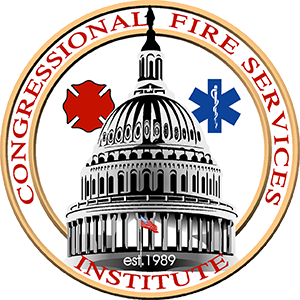“Engaging Future Leaders” Reflecting on the Next Generation of Fire Service Leaders

One aspect of my job that I enjoy most is traveling to fire service events and having the opportunity to address audiences who are interested in learning about the work being performed by CFSI and the other national organizations on Capitol Hill. It doesn’t matter to me if I have two people in the audience or two hundred. I always look forward to sharing with them CFSI’s efforts to advocate for federal programs and legislation that address the needs and challenges of our one million firefighters and emergency services personnel.
I have served as CFSI Executive Director since 1995. To a large extent, the folks who have attended my presentations throughout the years still comprise the largest percentage of the individuals attending my presentations today. That concerns me. And I see the same thing happening elsewhere at local, state and national conferences. The size of the audiences seem to be dwindling, while the average age is increasing. The question is: where is the next generation of fire service leaders – young men and women who we need to step forward and assume leadership positions now being vacated by the current generation of leaders?
In early September, I attended the Fire Service Occupational Cancer Symposium in Phoenix, AZ. Over 500 fire service officials attended the event and heard from a broad range of speakers. Dr. Lori Moore-Merrell of the IAFF delivered an excellent presentation titled, “Messaging for Cancer Prevention Through Cultural Change.” One of my takeaways from her presentation is that there’s much we need to learn about the younger generation before we will be able to fully convince them to get involved. Their values are different. Their ways of communicating are different. They tend to be more transient. If they aren’t satisfied in their work, they’re more inclined to make a career change.
Three weeks later, I facilitated a panel discussion featuring four fire chiefs. The theme of the discussion was “Next Generation.” Again, some very interesting points were raised about the next generation of fire service leaders. The one that got my attention was that the firefighters entering the ranks today are much smarter than the veterans. This was in no way intended as a derogatory comment. While you cannot underestimate the importance of experience that the veterans possess, the younger generation possesses considerable knowledge about new technologies being introduced in the fire service. While both perspectives are valuable, they both should also be “valued” by the old and the new in the process.
I have had numerous discussions on this topic with many of my contemporaries. One suggested that we – being the current generation of leaders – need to talk to the younger generation about why they need to get involved. While I understand what he intended to say, I have a different opinion. We don’t need to talk; we need to listen. We need to sit down with the younger generation and have them explain to us how we can help fuel their passion to get involved and lead. To do this effectively, it will require that we understand their values and priorities…the balance they are seeking between career- and personal fulfillment outside the fire service. In terms of engaging them in the various elements of an organization, we need to hear their ideas, such as on employing new technologies – not only operational technologies, but technologies that enhance training, management, and communications as well.
Leadership is about the future as much as the present. Whether you are the executive director of an association, a local union leader, the president of a volunteer department, or a chief, you need to ask yourself if you are doing enough to recruit and prepare the next generation of leaders to receive the torch when your day comes to pass it.
On April 18-19, 2018, the Congressional Fire Services Institute will host the 30th Annual National Fire and Emergency Services Symposium and Dinner. The theme of the program is “Engaging Future Leaders.” Each year, 1,500 fire service officials from across the country attend the program to participate in discussions with their peers, members of Congress and federal agency officials about federal legislation and programs that impact the fire service. CFSI will be making a strong push for our guests to invite future leaders to accompany them to Washington, DC in 2018 — and beyond for that matter — so they too can experience the important work conducted by fire service officials during this two-day program. Please consider joining us. Information about the event is available at www.cfsi.org.
Former Senator Bill Bradley of New Jersey said: “Leadership is unlocking people’s potential to become better.” This is what we need to do with future leaders in the fire service – to unlock their potential. Quite frankly, I can’t think of a better legacy the current generation of leaders could leave.
###
By William Webb on November 7, 2017
